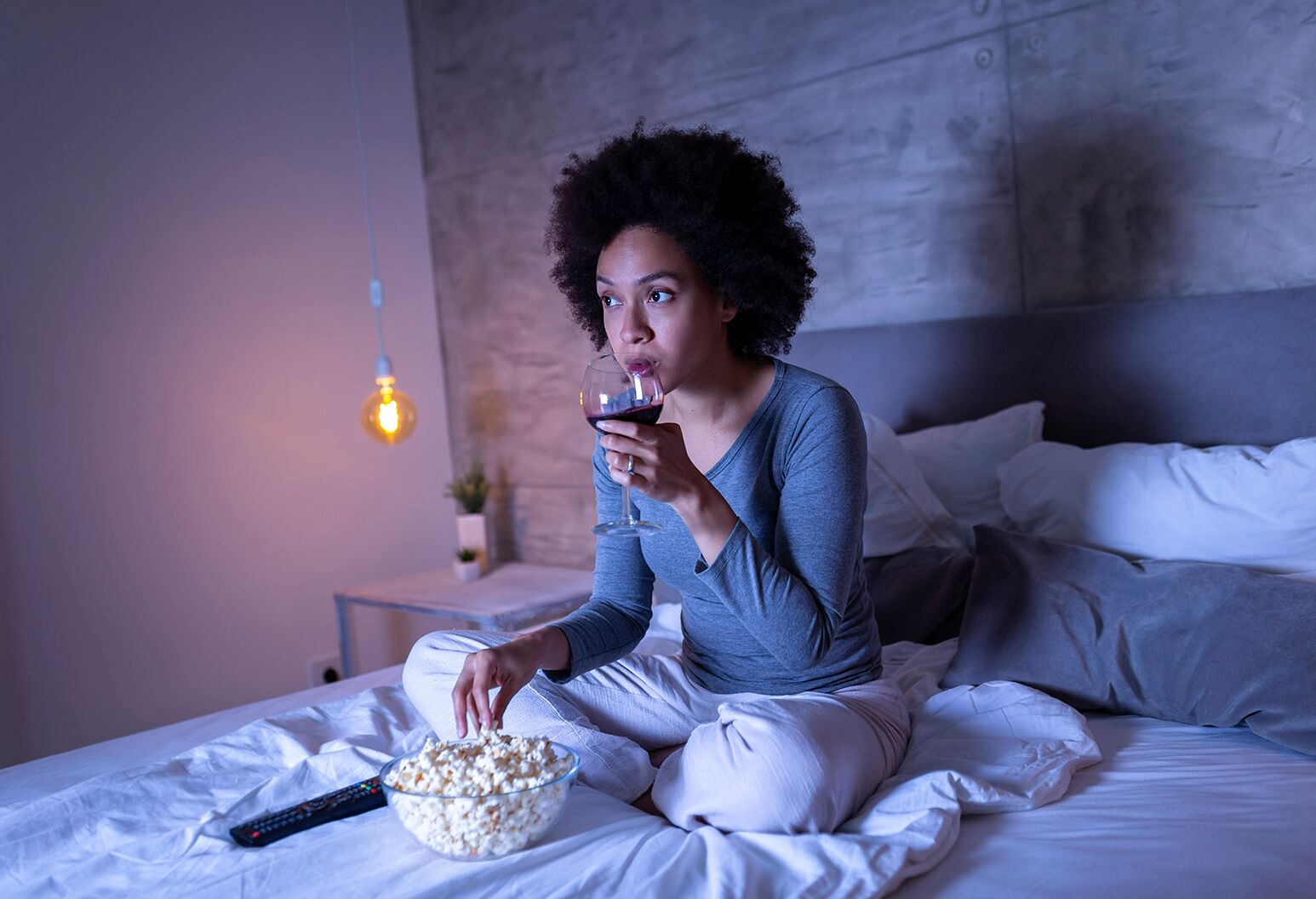healthy living/fitness
Balsamic Chicken And Jicama Slaw: A Perfect Match

A new study links the habit with an increased risk of heart disease.
3 min read
While I try to eat healthy most of the time, my busy job leaves little time for lunch breaks—meaning that I often find myself eating most of my calories later in the day. (Not to mention those occasional movie night snacks on the couch.) Recently, I’ve found myself going to bed with a stomach that’s feeling less than settled, and I’m wondering: Is all this late-night eating bad for me?
Sincerely,
“Midnight Snacker”
Eating the majority of your calories in the evening is not ideal for several reasons. First, when you have most of your calories earlier in the day, you allow yourself time to burn some of them off. So if you're eating later in the evening, your body is more likely to store those evening calories as fat, and that can lead to weight gain.
We know that being overweight or obese increases the risk of cardiovascular disease, but a recent study by Columbia University researchers suggests that late-night eating can increase your risk of cardiovascular disease in other ways, too.
The researchers studied the eating habits of 112 women and found that those who consumed a higher proportion of their daily calories later in the day were at greater risk for cardiovascular disease than women who did not. Specifically, they found that every 1% increase in calories consumed after 8pm increased the likelihood of not only a higher BMI (body mass index), but also higher blood pressure and poorer blood sugar control.
Keep in mind that this is preliminary research since the study size was fairly small, and a larger study is currently underway, but it does add another reason to avoid eating too much too late in the day.
Limiting your calorie intake during the evenings can have a positive impact on your intestinal health as well. I hear all the time from patients who snack late at night and go to bed feeling bloated or with a stomachache and then don’t eat breakfast because they’re not hungry in the morning. But once they change that pattern and stop eating before going to bed, their GI complaints improve and their appetite improves, too.
Part of the problem is that when we snack in the evenings, we’re usually not reaching for something healthy. Instead, we tend to reach for treats that are high in carbs, sugar, salt, or fat, such as ice cream, cookies, or chips. And while you might think you’ve “earned” that little treat before bed, the truth is, you don't need it. Late-night snacking isn’t due to true physical hunger—we do it out of habit or to soothe ourselves with food. So it’s a habit that you can definitely work on breaking and the best prevention is being prepared. Focus on a new habit of preparing your meals and snacks at home the night before and take them with you to work. This way, when you do start to feel hungry, you have a healthy, easily accessible choice at your fingertips.
As for late night snacking, this too is more habit than actual hunger. If you really feel like you need something (and have a sweet tooth), try a square or two of dark chocolate, or try a soothing cup of hot herbal tea to help you relax before bed. On movie nights, try plain air popped popcorn—it’s low calorie and goes a long way! You can even get fancy, sprinkling it with different seasonings and spices.
Your waist line will thank you for all the positive changes!
The Well is Northwell Health’s commitment to the future of health care. In this time of information overabundance, much of which is inaccurate, unhelpful, or even difficult to understand, Northwell Health is on a mission to make a difference as an honest, trusted, and caring partner. The site connects with consumers to provide them with personalized content that reduces their stress, makes them laugh, and ultimately feel more confident and capable on their healthcare journey.